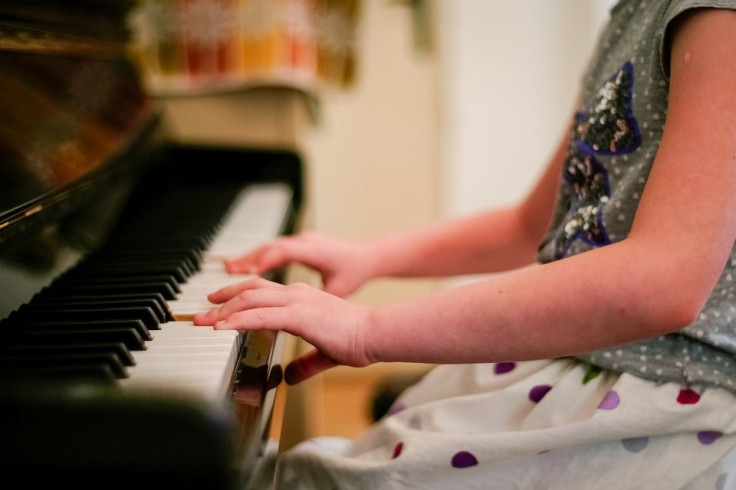Music Therapy May Not Improve Autism, Study Finds

The combination of music and therapy is believed to help children with autism feel more motivated, creative, and able to communicate better. But, a new study found that music therapy may not actually help improve autism symptoms.
In the study, published in JAMA, Norwegian researchers found that children who participated in improvisational music therapy and standard care didn’t have an improvement of their symptoms any more than those who received only standard care for autism spectrum disorder (ASD).
Read: Preventing Epileptic Seizure: Epilepsy (And These Other Conditions) Benefit From Musical Therapy
“It might be good a option for only those kids on the lower-functioning of the spectrum,” study author Christian Gold, of the Grieg Academy Music Therapy Research Centre in Norway, told CNN.
Gold and his colleagues studied 364 children, ages 4 to 7 years, all of whom were clinically diagnosed with ASD. Half of the kids were randomly assigned to receive standard care and the other half of the group received both standard care and improvisational music therapy for 5 months.
In this type of therapy, an accredited professional creates music along with their client using everything from their voices, body sounds, and various types of instruments.The music therapist focuses closely on the child’s attention, behaviors, and interests in order to improve their social communicative skills. As for standard care, the families received the local care available in one of the nine countries involved in the study. Parents also received information about ASD as well as counseling to discuss any concerns.
“Most commonly, enhanced standard care included speech and language therapy, communication training and sensory-motor therapy,” Gold explained to CNN.
Read: Music Therapy For Depression: An Efficient, Cost-Effective Way To Treat Children And Teens
To measure the severity of the participants’ symptoms, the researchers used a protocol known as the Autism Diagnostic Observation Schedule (ADOS). Upon completing five months of treatment, the researchers found that both groups showed a very minimal improvement in the severity of their ASD symptoms, according to their ADOS scores.
“These findings do not support the use of improvisational music therapy for symptom reduction in children with autism spectrum disorder,” the authors conclude in their paper.
Past research supports music therapy sessions for those with ASD, citing that it helps to provide multi-sensory stimulation, increased attention, and the ability to better express emotions, according to the American Music Therapy Association. But, it’s important to note there's no one-size-fits-all treatment for the disorder. There’s a long list of treatment options including medications, auditory training, vitamin therapy, occupational therapy, and sensory integration, among other options, according to the Centers for Disease Control and Prevention.
See also: Music Therapy Works Better Than Relaxation Exercises In Improving Health Of Palliative Care Patients
Autism Research 2017: Certain Vitamin, Mineral Deficiencies During Pregnancy May Increase ASD Risk



























